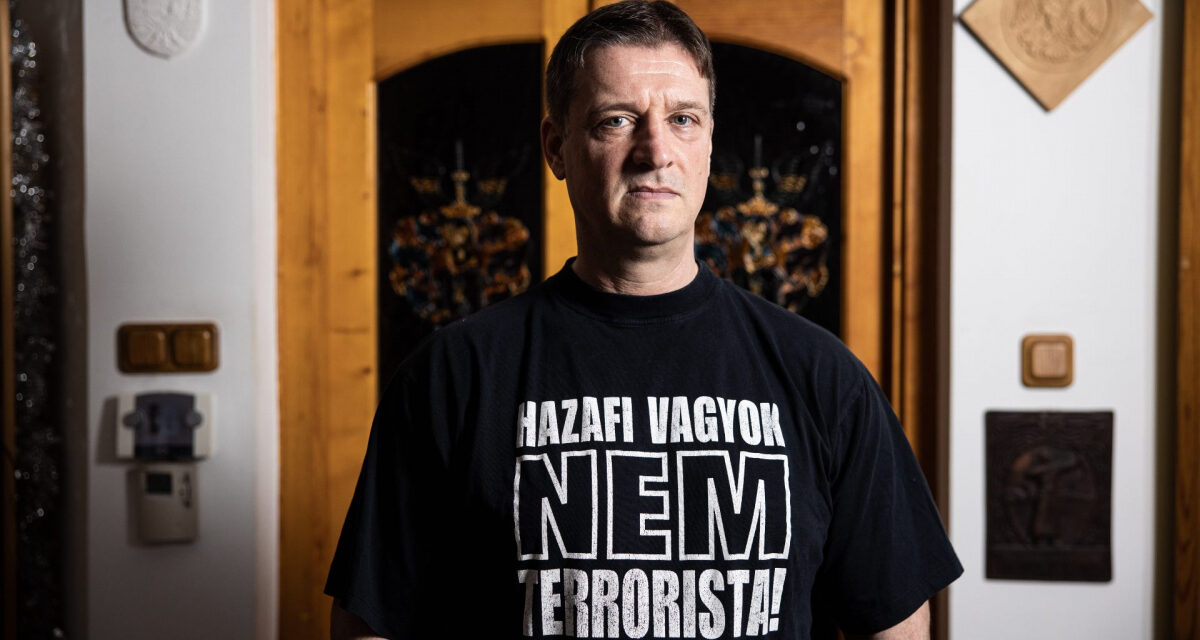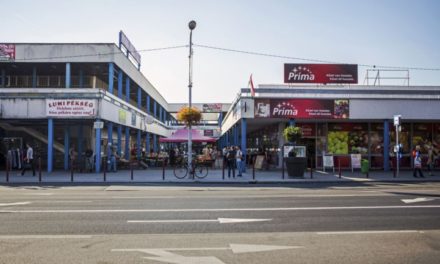In the repeated first instance procedure, György Budaházy was sentenced to seventeen years in prison, but the court also imposed heavy penalties on his companions. According to the defendants, the sentence is unacceptable, and it is impossible for the Capital Court to leave it in place.
The repeated second-instance proceedings in the trial of György Budaházy and his colleagues accused of terrorism ended on Wednesday at the Capital Court of Justice with the defendants' right to have the last word.
The court will announce a verdict in the criminal trial on March 9.
In the proceedings that lasted more than 13 years, György Budaházy and 16 of his companions were accused of having attacked the properties of politicians, such as István Hiller and János Kóka, in 2007 and 2008, and they had also beaten politician and television presenter Sándor Csintalan.
In 2010, the Central Investigative General Prosecutor's Office submitted an indictment in the process known as the Hunnia case for a terrorist act and serious bodily harm committed for nefarious reasons. The defendants denied their guilt throughout.
Since then, a first-instance judgment was issued in 2016, which was overturned in 2018. In the repeated first-degree proceedings, a verdict was announced last year, in which György Budaházy was sentenced to 17 years in prison.
According to the assessment of Tamás Gaudi-Nagy, the manager of the National Defense Service (NJSZ), which provides assistance in the legal defense of the accused, the accused and the defense have listed all the legal arguments to prove the innocence of the accused.
Last December, the President of the Republic, Katalin Novák, granted a presidential pardon to seven of the seventeen defendants: those who were acquitted by the court in the first instance, as well as those whose crimes were deemed to be less serious. At the same time, the head of state indicated that he would wait for the decision of the second instance to assess the pardon request of the others.
According to the summary of the NJSZ, the 10 defendants are currently sentenced to 102 years in prison based on the first instance verdict, which is an average of 10 years and 3 months per person.
György Budaházy has so far spent more than 3.5 years in detention, and another similar period under other coercive measures. In the case of all of this - calculated with parole - the imposed sentence corresponds to 5 years and 9 months in prison or 6 years and 7 months in prison. If the 17-year prison sentence were to remain in his case, he could only be released in 2036, as the possibility of parole is ruled out due to the classification of a criminal organization.
As Katalin Novák reminded when justifying her pardon decision, the court could not make a final decision on the case in nearly a decade and a half. According to him, the Budaházy case also points out that unreasonable delays in court proceedings are unacceptable and violate people's sense of justice.
Earlier, Gergely Gulyás, the minister in charge of the Prime Minister's Office, sharply criticized the courts because of the protracted proceedings. After the repeated first-instance proceedings, the minister said: the court has already taken a role in this case.
It violates legal certainty and the basic principles of the rule of law to an unacceptable extent that even after 13-14 years the procedure has not been closed. said the minister.
There are more and more supporters. Along with the Budaházys, more and more people are standing out, such as neurosurgeon András Csókay, heart surgeon Lajos Papp, writer Görgy Domokos Varga, and Reformed pastor Lóránt Hegedűs. A few days ago, András Schiffer, a former member of parliament and the former president of the LMP, stood by the defendants. In his video message, he emphasized:
"At a time when we have already overcome terrorist acts such as the Charlie Hebdo or Bataclan attacks, it is quite unbelievable that the acts committed by the Budaházys and their associates are classified in this way."
szbatsagot.com aimed at pardoning the accused has already been signed by more than ten thousand people.
Everyone is anxiously awaiting next week's sentencing: György Budaházy said in an interview with Mandiner last December: He really doesn't want to go back behind bars again, since they have already completely destroyed his life.
"Even if there are people who think we deserve some kind of punishment, in my case, I think it's already happened," he said in the interview.
Source and full article : mandiner
Featured image: mandiner.hu












